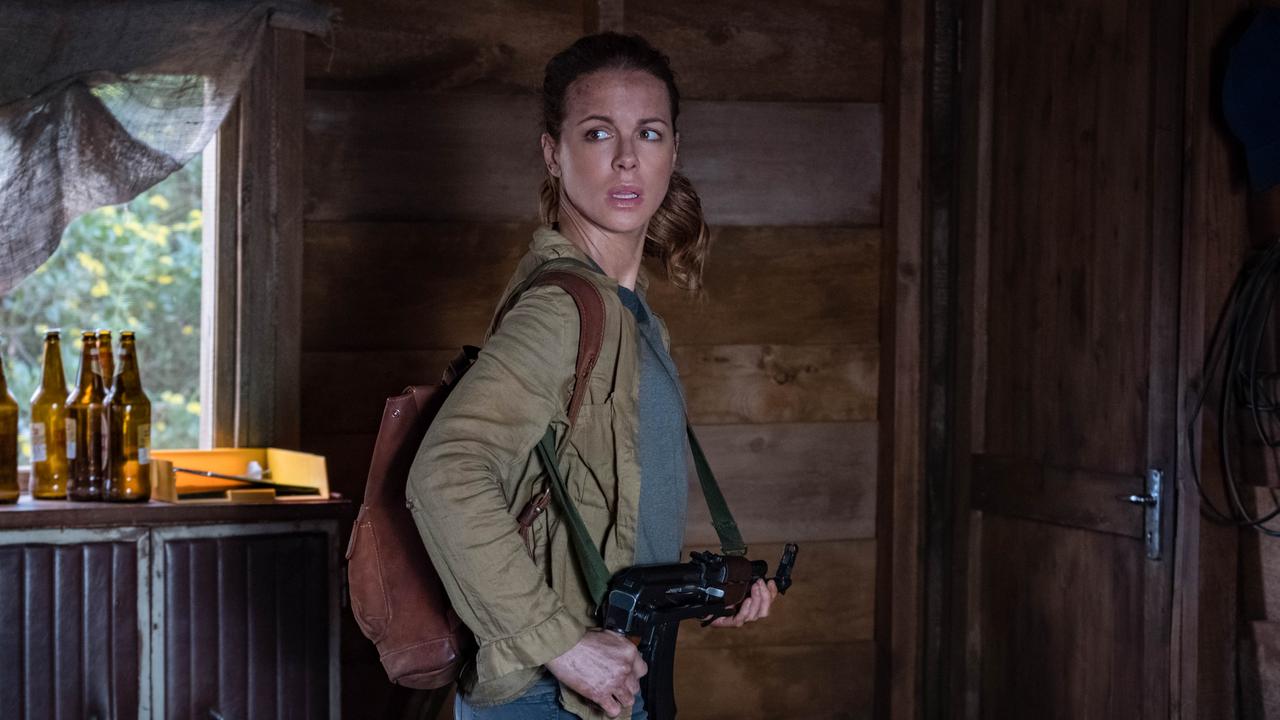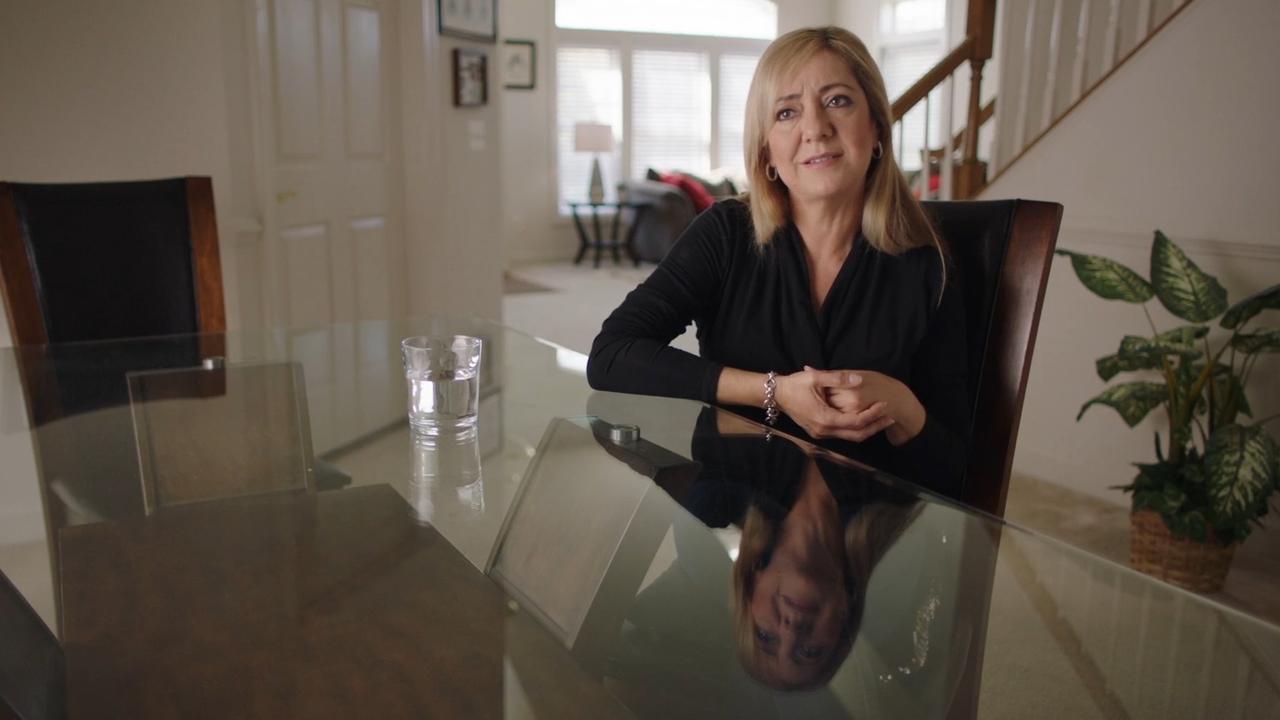Seeking asylum
LOCAL television rarely offers up stories of Australians wedged between cultures: they are most often ignored or forgotten in our dramas.
LOCAL television rarely offers up stories of Australians wedged between cultures: they are most often ignored or forgotten in our dramas.
Failing to recognise that a different kind of majority inhabits our suburbs, TV finds it almost impossible to recognise that characters who look non-Anglo-Saxon or are from non-English-speaking backgrounds can also be Australians with resonant stories to tell.
But as Tony Ayres's TV movie Saved, written by Belinda Chayko and produced by Michael McMahon, shows so wrenchingly, what these people experience in settling in Australia is rarely as simple as hiring a removalist and moving into the neighbourhood. There are often casualties along the way.
Starring Claudia Karvan, Saved is a powerfully understated story of how an emotionally fragile woman's passionate support and practical social advocacy for an asylum seeker almost destroys her life.
Chayko's script subtly illustrates the psychological obstacles erected to thwart interaction between asylum seekers and the Australian public, by government agencies and through media campaigns of demonisation.
But nothing is overstated in her writing; there are no self-congratulatory messages. Nothing is shrill in this accomplished piece of filmmaking, though the ghost of the bungled prosecution of Mohamed Haneef is never far away in an Orwellian subplot.
Ayres says that with Chayko's involvement, a story that began as a rather familiar plot about a woman having an affair with a younger man became a moving and original blend of relationship drama and mystery. It was originally designed as a feature film, but the producers realised the story's topicality and immediacy would work better as a drama for the small screen; and it would probably reach a larger audience, even on SBS.
According to Ayres, they were fortunate that, coincidentally, at the time they showed the draft to SBS, the broadcaster was contemplating adrama dealing with the concerns of asylum seekers, but not in a "worthy" or predictableway.
Julia Weston (Karvan) is a shy, conservative married woman in her mid-30s; a mother struggling emotionally with the loss of her newborn daughter, Matilda, to sudden infant death syndrome. Her gardener husband, Peter (Andy Rodoreda), in whose blokey shadow she lives, hurls himself into contracting projects in order to cope while his wife drowns in grief.
The film's first images are slightly out of focus, showing a woman despairing and isolated, seemingly submerged, and intercut with happy scenes of a middle-class retirement party: that of her husband's lawyer father.
Recognising that Julia needs a distraction, her sister-in-law (Elise McCredie) suggests she accompany her to the detention centre where she volunteers as an advocate for detainees. She warns Julia of the dangers of attachment and too much empathy. "Watch out for the HRT set," she says. "Menopausal women looking for meaning in their lives."
Julia reluctantly decides to assist Amir Faraschi (Osamah Sami), a young Iranian asylum seeker claiming to be a student persecuted by the Iranian authorities. His identity isunder scrutiny, disputed by the Department of Immigration.
He is initially wary of this fragile woman bearing cakes. "You want my story to put in your pocket, then go home and show your friends and say look at the story of the asylum seeker," Amir says derisively. "He's so sad; it's so bad to live in a country that would treat a human being like that." But quickly they recognise the deep vulnerability in each other, in what soon becomes a complex relationship.
"She is closer to Amir than she is to her husband, really, in terms of being connected to their own losses," Chayko says. "It's both that of a mother to a child but it's also an eroticised relationship; these men are young, attractive and very masculine, and the attraction the women have is that of being desperately needed bysomeone."
Amir is severely depressed, suicidal and days from deportation. Julie throws herself obsessively into his case to the disapproval of her
in-laws and her husband, his tolerance increasingly tested. The questions accumulate as the relationship becomes intense. Julia is forced to question whether her damaged marriage, marked by silences and secrets, is worth saving. Subtle cracks appear in Amir's stories: Was he really working for the regime before arriving in Australia? Is he a spy? Is lying simply and unavoidably part of his survival strategy?
It makes for riveting, almost voyeuristic, drama and it's often hard to know if we are watching fiction or dramatised documentary.
Chayko's is a stylised screenplay; you sense that in writing she was anticipating visually, and in detail, the finished film. It's rare in local TV to sense the collaboration between writer and director, where interminable dialogue usually fills the pages of the script.
"Tony never likes to overdo things," she says. "I have a tendency to spareness anyway; then Tony comes in with his red pen and cuts even more dialogue, then words go in rehearsal and in the edit."
Ayres's direction, too, is elliptical; the complex story is told largely visually, the action embodied in the juxtaposition of images that have their own language and emotional effect. Unlike many of our TV directors, Ayres appreciates that each shot is a statement made with the camera, for the purpose of creating a state of mind, of emotion, in the audience.
Chayko says she likes the way a cut-back, elided script allows an opening out of the story, creating space for the complexities of actors. Too often actors in local drama are left in a state of anarchy by prolix writing, fending for themselves, pulling tricks from their kit like old comedians. But this ensemble cast works with an acute control over the shape of every line and movement. Iraqi-born Sami, who has had notable roles in SBS's Kick and East West 101, is particularly vulnerable and affecting.
Karvan, as always, is magnetic without ever seeming to try. This movie is Ayres's tribute to what he calls her "rare blend of emotional complexity and stillness", especially since Julia is not really a traditionally sympathetic character and hardly behaves particularly virtuously. But Karvan always acts without shame or vanity, serving her characters with unshakable honesty.
Whenever I watch her work I'm struck by the way she effortlessly draws on aspects of herself in a manner you rarely see on local TV. She bursts out of cramped interiors simply by moving her eyes, pursing her lips or turning herhead.
This classy movie is a telling reminder that the local film industry isn't really moribund; it's compellingly alive on our small screens, a place where increasingly our best cinematic talent is performing with skill and flair.
Saved screens on SBS, 8.30pm, Sunday April 12.



